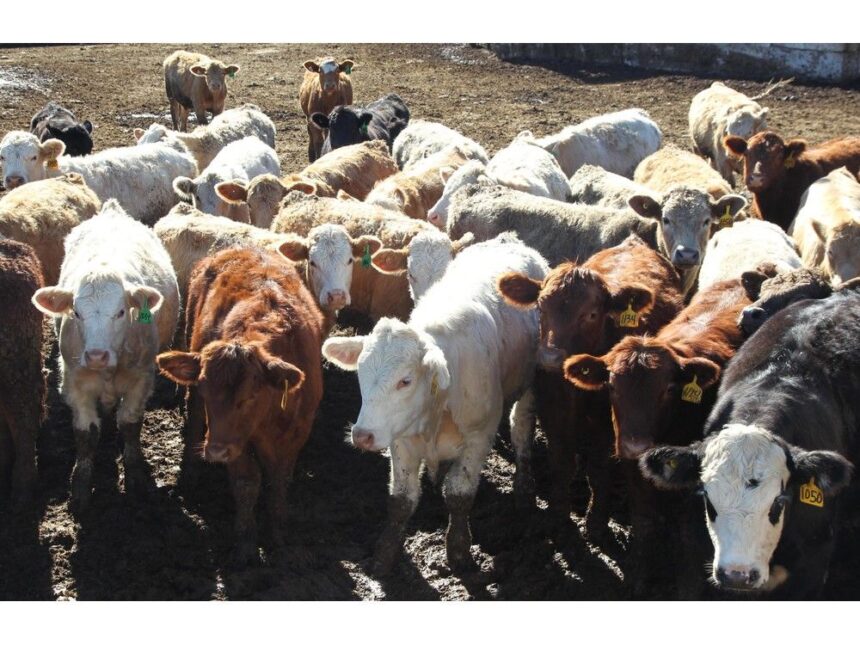Canada’s beef sector is highly concentrated, perhaps even more than in the United States, writes Sylvain Charlebois. Photo by GREG AGNEW /TIMES & TRANSCRIPTArticle contentEarlier this month, U.S. President Donald Trump announced that his administration was directing the Department of Justice to investigate major meat-packing companies for allegedly driving up beef prices through collusion and price manipulation.THIS CONTENT IS RESERVED FOR SUBSCRIBERS ONLY.Subscribe now to access this story and more:Unlimited access to the website and appExclusive access to premium content, newsletters and podcastsFull access to the e-Edition app, an electronic replica of the print edition that you can share, download and comment onEnjoy insights and behind-the-scenes analysis from our award-winning journalistsSupport local journalists and the next generation of journalistsSUBSCRIBE TO UNLOCK MORE ARTICLES.Subscribe or sign in to your account to continue your reading experience.Unlimited access to the website and appExclusive access to premium content, newsletters and podcastsFull access to the e-Edition app, an electronic replica of the print edition that you can share, download and comment onEnjoy insights and behind-the-scenes analysis from our award-winning journalistsSupport local journalists and the next generation of journalistsRegister to unlock more articles.Create an account or sign in to continue your reading experience.Access additional stories every monthShare your thoughts and join the conversation in our commenting communityGet email updates from your favourite authorsSign In or Create an AccountorArticle contentThe move — unsurprisingly — generated headlines, applause from ranchers and skepticism from economists.Article contentArticle contentArticle contentAnd it raises an uncomfortable question north of the border: Why hasn’t Canada done the same?Article contentBeef prices have soared on both sides of the 49th parallel. In the United States, retail prices are up between 11 and 14 per cent year over year, depending on the cut. In Canada, increases have been even steeper — roughly 14 to 16 per cent, with some premium cuts up more than 30 per cent since January.Article contentNowhere is the contrast more visible than at the meat counter. The average U.S. price for 100 per cent ground beef reached US$6.32 per pound (about US$13.94 per kilogram) in September, up roughly 11.5 per cent in a year. In Canada, consumers paid an average of $14.85 per kilogram (roughly $6.72 per pound), an increase closer to 13-14 per cent.Article contentEven after accounting for exchange rates, Canadians are paying slightly more for one of the most basic beef products, proof that our inflation problem is at least as severe as America’s, if not worse.Article contentArticle contentIn Washington, invoking antitrust law to protect consumers plays well politically, especially when it comes wrapped in populist rhetoric about “foreign-owned corporations.” The four dominant U.S. packers — Cargill, Tyson, JBS and National Beef — control over 80 per cent of the market. By ordering a DOJ probe, Trump signals to American ranchers that he’s on their side, defending domestic agriculture against multinational giants. Whether evidence of wrongdoing exists is secondary; the optics of action matter more than the outcome.Article contentOttawa, by contrast, avoids such theatrics. Canada’s Competition Bureau operates under a very different legal and cultural framework — one that prizes quiet compliance and long-term guidance over public confrontation. Even if beef prices rise in lockstep across the country, that alone isn’t grounds for an investigation. Under Canadian law, proving “price fixing” requires explicit communication between companies — emails, calls or co-ordination — not just parallel pricing. High prices, no matter how painful, are not inherently illegal.
Sylvain Charlebois: Trump beefs with meat packers while Ottawa stays silent at the grill











